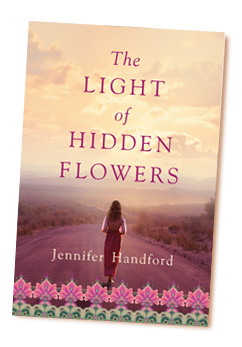Gray Space
I’m in love with the gray space. As a writer searching for words that tell the truth, there is nothing more honest than the gray space of moral uncertainty—that void where one truly doesn’t know, or when one does know and yet acts against his or her own best judgment. The uncertainty is all the more confounding when one holds two diametrically opposed beliefs at the same time, and yet the cognitive dissonance of being torn lends itself to some of the most honest disclosures. One of my favorite words is struggle, which to me is a bit onomatopoeic. To my ear, the word itself resonates as much the pop of a balloon or the tweet of a bird; for me, struggle conjures the image of rope tangled in knots. If as writers we’re being honest about how it feels to be human, then we must admit to our struggles.
During my short tenure of teaching writing at the college level, I often used George Orwell essays. He was a master of wading through the gray space, of making sense of—or at least picking apart the contradictions in—one’s duplicity. In his essay “Shooting an Elephant” (1936), he wrestles with the discord of believing one thing and doing another. He was against tyranny, but at a more focused level, “I could get nothing into perspective.” I love that line. And after killing the elephant, simply because people were watching him, he reflects, “I often wondered whether any of the others grasped that I had done it solely to avoid looking like a fool.” This essay, like many, reflects the classic struggle of doing what is morally right when the world demands conformity in sync with some other standard.
This year, as I worked on my third novel, THE LIGHT OF HIDDEN FLOWERS, I created my main character, Melissa Fletcher. Her closest relation is her father, Frank, whom she loves dearly. For his backstory, I made Frank an army guy, drafted at the time of the Gulf of Tonkin Resolution. In my book, Frank often ruminates about the war, and I wanted to make sure his emotions about it made sense for the character I intended.
In general, his personality is optimistic, expectant, hopeful. He has fond recollections of his buddies from the war, but I had to be sure not to mistake his affection for his buddies for a warm regard for the war itself. To gain the proper perspective, I turned to Tim O’Brien’s inimitable THE THINGS THEY CARRIED (1990). There was no sugarcoating in this book, just truth.
My favorite section is when the author recounts his own decision-making process after he receives a draft notice. He believed he was too good for this war, too smart. Phi Beta Kappa, summa cum laude and with a full-ride scholarship for graduate studies at Harvard. Moreover, he didn’t believe in the Vietnam War; to the contrary, he believed it to be unjust. Reflecting on that time, O’Brien notes, “The only certainty that summer was moral confusion.” He explains that he couldn’t claim he was against all wars; there were instances, in theory at least, for which he believed war was justified. Stopping Hitler, for example. But the Vietnam War? He was against it. So O’Brien takes a few days in a cabin in the woods in northern Minnesota and considers whether to dodge the draft. Canada is just over the Rainy River. His conscience tells him it’s the right thing to do. But he gives into pressure—societal pressure, small-town pressure, what-will-the-folks-and-their-friends-at-the-diner-think-of-me pressure. O’Brien explains, “I feared the war, yes, but I also feared exile.” He struggles—he twists and turns and ties himself into knots—but ultimately goes to war. The bottom line for him at the time? “I would go to the war—I would kill and maybe die—because I was embarrassed not to.”
THE THINGS THEY CARRIED is used frequently in college courses, but I didn’t read it until I began to shape Frank. I’m glad I decided to turn to it to explore the sense of desperation and futility so many men felt in Vietnam—and to begin to understand how the ones who came home never completely put that burden down. They carried it then, carry it now, and will carry it forever. I’m grateful to Tim O’Brien for his extraordinary reflection on war.










